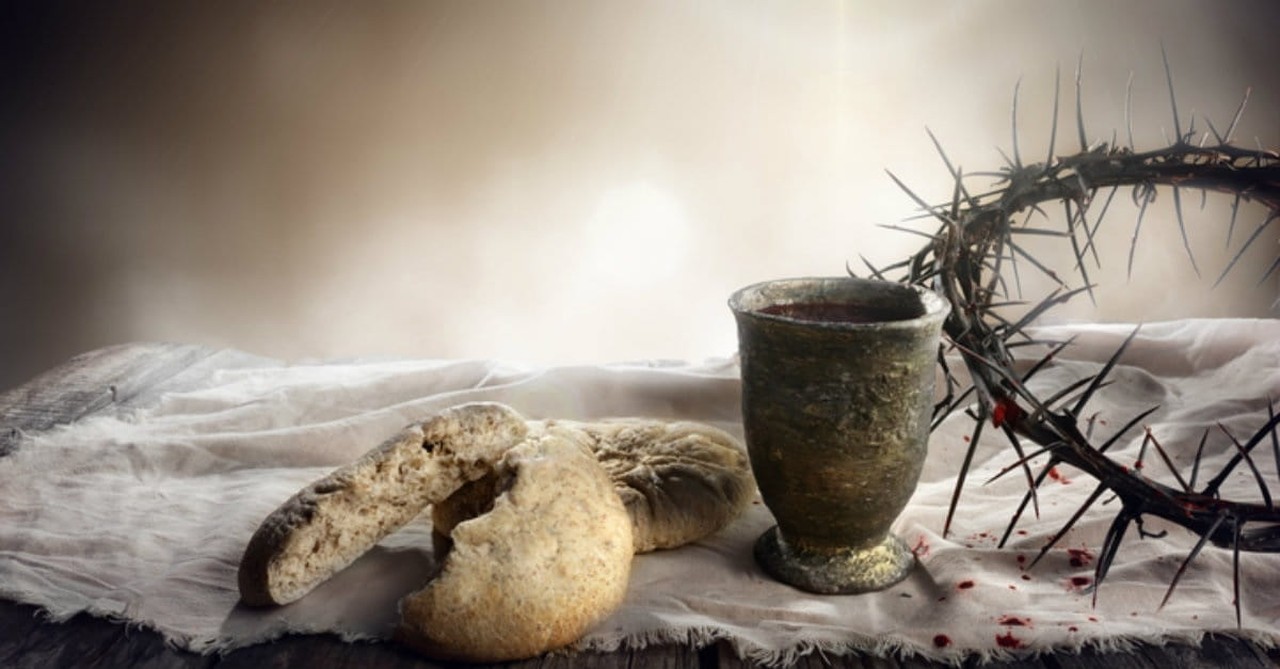Why Christians Need a Maundy Thursday Faith Long after Easter

Have you considered walking away from the church due to disillusionment or pain? Many have gone through the phenomenon known as “dechurching.” If the answer is yes, then even after Easter, Maundy Thursday has a message for you.
The word “Maundy” derives from the Latin word mandatum, which means “mandate” or “command.” On Maundy Thursday, Jesus gave his disciples a final commandment before he was betrayed, arrested, and condemned to suffer on the cross. Jesus instructed, “A new command I give you: Love one another. As I have loved you, so you must love one another” (John 13:34). Any commandment of Jesus is not to be taken lightly. Still, certainly the last one that he gave holds special significance. Show this love to himself, he shared a symbolic meal with his disciples and washed their feet. He shared a Passover meal, signifying Jesus’ role as the final Passover Lamb. It is also called the Last Supper and lays the biblical precedent for the sacrament of communion.
While a lot happened on Maundy Thursday, Good Friday and Easter typically get the most attention. To be sure, both days are essential. Good Friday is good because Jesus took our place. His one sacrifice on the cross was powerful enough to reconcile humanity back to God because of who Jesus is, and it’s a gift that we benefit from when we believe. Easter is a celebration of Jesus’ victory over death, a triumph that becomes our own when we also believe. So through belief, we are forgiven and receive enduring hope and salvation through what transpired these days. Here are five reasons why the message of Maundy Thursday is important and especially worth honoring in the wake of Easter. It’s precisely what the church needs right now.
Photo Credit: ©Thinkstock/RomoloTavani
1. Just as the Disciples Weren’t Perfect, We Aren’t Either

1. Just as the Disciples Weren’t Perfect, We Aren’t Either
SLIDE 1 OF 5
The Gospel of John sets the stage for the Maundy Thursday meal with these words: “Having loved his own who were in the world, he loved them to the end” (13:1). Jesus loved his disciples. We see Jesus’ love through the lengths he goes to on the cross for our salvation, too. But have you ever considered the gravity of what it took to commune with his disciples just hours before he knew what was to come?
Jesus’ heart was pierced before his body was. He knew he would be betrayed and deserted by the same disciples he called to sit around his table. He chose to pull them close instead of pushing them away, broken as they were. He ate with them and gave them an act to always remember him by through the Lord’s Supper. What’s more, his very spirit would be with them whenever they would partake in it, and it also serves as a precursor to his banquet with them in heaven.
Maundy Thursday shows us that Jesus does not demand perfection but desires our hearts. The disciples weren’t perfect; if we’re honest, we aren’t either. Even though we love him, we can and do sin. The Bible says, “For all have sinned and fall short of the glory of God” (Romans 3:23). Jesus calls us into his body, signified by his offer of bread and wine at significant cost. His open invitation to love is a salve in our weary world, and we can only find it through him.
Photo Credit: ©GettyImages/Tinnakorn Jorruang / EyeEm
2. Our Imperfections Did Not Derail Jesus’ Sacrifice but Motivated It

2. Our Imperfections Did Not Derail Jesus’ Sacrifice but Motivated It
SLIDE 2 OF 5
Jesus not only pulled his disciples close before they disappointed him, but he willingly died for them and us. His selfless act wasn’t inspired by frustration, but by love. Love is why God the Father sent Jesus to Earth (John 3:16). Love is why Jesus, though troubled in the Garden of Gethsemane, chose to obey the Father through the cross.
Jesus’ sacrifice on the cross is different from any other sacrifice. Jesus was spotless. Because he was and is God, he did what none of us could ever do.
Romans 5:6-8 reads, “You see, at just the right time, when we were still powerless, Christ died for the ungodly. Very rarely will anyone die for a righteous person, though for a good person, someone might dare to die. But God demonstrates his love for us in this: While we were still sinners, Christ died for us.”
Only one selfless act of sacrifice could set the entire human race free. Shortly before he died, Jesus says, “For I did not come to judge the world, but to save the world” (John 12:47). Maundy Thursday demonstrates the singular purpose of a dedicated God who would not be deterred. And God is still at work in the world.
Photo Credit: ©GettyImages/Arthit_Longwilai
3. The Imperfect Disciples Went on to Do World-Changing Work for the Church.

3. The Imperfect Disciples Went on to Do World-Changing Work for the Church.
SLIDE 3 OF 5
Miracles happened around that Maundy Thursday table. The same disciples Jesus knew would disappoint him went on to change the world in his name. Their belief in Jesus and understanding of his selflessness inspired a singular purpose. They laid the foundation for the church, which is still standing today.
Simon Peter, who cut the ear off of the high priest’s servant and denied Jesus three times in one night, became the rock upon which Jesus built his church (Matthew 16:16-19). All the disciples, except Judas, who ended his life, were persecuted because of their evangelism. Many of them were martyred. Peter was eventually hanged for his faith, though he requested to be hanged upside down since he felt unworthy to die in the same manner as his Lord. Some traditions claim that the disciple John was the only one to die of natural causes in his old age. However, he was plunged into boiling oil and exiled to the Island of Patmos, where he wrote the Book of Revelation beforehand. Indeed, the disciples’ power did not lead to these miraculous transformations. Instead, it was their love for Jesus and willingness to be used by him.
God can take broken people and do incredible things; the church doesn’t need to be perfect to be effective. Thank goodness, because the church is only made up of imperfect people! But when we submit to the Spirit’s direction and will, we can take new ground for the kingdom, just like the disciples did in the early church.
Maundy Thursday has a prophetic word for us. If you are looking for a perfect church or considering walking away (unless the situation is abusive), consider Jesus at that Maundy Thursday table. Consider the imperfect people he pulled close. Ask yourself if the Spirit of God is alive in that church. If the answer is yes, God can and will still use it.
Photo Credit: ©Getty Images/George Muresan
4. As Christ’s Disciples, We Cannot Forget the Importance of Community

4. As Christ’s Disciples, We Cannot Forget the Importance of Community
SLIDE 4 OF 5
I have heard some Christians say that they don’t need to go to church because they can be spiritual on their own. They know and love Jesus, and that’s enough. The Maundy Thursday table challenges this notion. Jesus gathered his community together as one of his last acts. He loved them, imperfect as they were, and chose a powerful and communal way to show it.
Jesus gathered his disciples around a table and ate with them. Nothing brings people together like a meal. There seems to be a pipeline from the stomach to a person’s heart. Meals can be a powerful way to communicate love. The meal that Jesus shared with his beloved disciples was not only symbolic and sacramental, but it was also communal.
The disciples were the guests of the Maundy Thursday table then, and we are his guests now. Jesus still gathers imperfect people to eat with him at his table every time the Lord’s Supper is served. He’s still inviting those who love him to come together in his name and experience his presence communally through his body, the church. The threat of death did not stop Jesus from making his invitation then, and we’re blessed when we accept it now. Jesus, the Bread of Life, wants to feed us so that our cup is overflowing (John 6:35, Psalm 23:5). Sometimes, Jesus’ best gifts come from his community—we deny ourselves these lifelines of mercy when we walk away.
Photo Credit: ©Sparrowstock
5. A Service Mentality is What Christ Asks of Us

5. A Service Mentality is What Christ Asks of Us
SLIDE 5 OF 5
When the disciples were gathered around the Maundy Thursday table, Jesus bent down and washed their feet. Foot washing was typically the work of a servant in the house, not the guest of honor. Also, feet were filthy in those days due to sandal-wearing, unpaved roads, and wandering animals. But dirty feet and social norms didn’t stop Jesus.
There is rich Christian instruction in this pivotal moment before his death, when we observe what Christ did and did not do. Christ chose to model radical service. His foot washing physically underlines his final spiritual commandment. Jesus instructed, “A new command I give you: Love one another. As I have loved you, so you must love one another” (John 13:34). His instruction at the Maundy Thursday table is instruction for a lifetime, and his emphasis is service.
The same God who loves us and redeems our brokenness also commissions us. The best way to grow and care for his church is following his Maundy Thursday commandment. Jesus teaches, “Now that I, your Lord and Teacher, have washed your feet, you also should wash one another’s feet. I have set you an example that you should do as I have done for you” (John 13:14-15). We serve Jesus when we display radical love in his honor. Therefore, the question isn’t, “What can the church do for me?” but, “How can I better serve Christ by honoring his final commandment as a part of his church?” The church is Christ’s body, and it functions best when all its members participate together to enrich it in his service.
Maundy Thursday is more than a holiday to honor annually—it’s the very reminder the church needs right now. To model Christ, we should focus on humble service in his name through his very body. Maundy Thursday is comprised of imperfect people who want to know a perfect God better. But in all moments, he draws us close. We need his grace, and we have been invited to the table. We, as the church, get to choose how we show up. We still can and will change the world through service in his name for his glory.
Photo Credit: ©iStock/Getty Images Plus/FredFroese

Originally published May 06, 2025.






